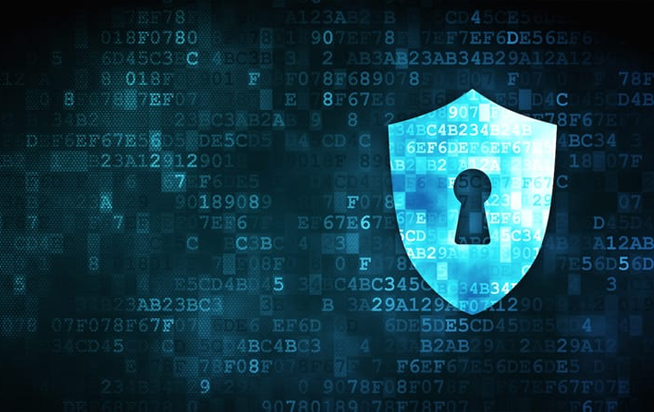
Master of Science in Cyber Security. Nov 26 2020
Admin
What is Cyber Security? Why It Is Important?
Cyber security is the practice of defending computers, servers, mobile devices, electronic systems, networks, and data from malicious attacks. It's also known as information technology security or electronic information security. The term applies in a variety of contexts, from business to mobile computing. The effects of cyber security is follows
1 – CYBERATTACKS AFFECT ALL PEOPLE
Cyberattacks are now so common, recent reports show that hackers attack a computer in the US every 39 seconds! Once an attack happens millions of people could be harmed. State-run organizations can be shut down, services can’t be provided to citizens. Businesses face over 4000 hacks every single day using ransomware alone. Cyberattacks can happen on a global scale as well with hackers breaching government organizations. The National Cyber Security Centre (NCSC) warns businesses and citizens that Russia is exploiting network infrastructure devices such as routers around the world. The aim is to lay the groundwork for future attacks on critical infrastructure such as power stations and energy grids.
It is such a threat that nuclear plants can be attacked causing a nuclear disaster with millions of lives lost. In Iran, one of the nuclear facilities was attacked by a malicious computer worm, Stuxnet, that ruined one-fifth of Iran’s nuclear centrifuges. These cyber worms caused centrifuges to heat up and may have caused an explosion costing human lives.
2 – THE FAST CHANGES IN TECHNOLOGY WILL CAUSE A BOOM IN CYBERATTACKS
Faster speed of broadband service.
With the advent of the 5G network. According to The Brookings Institute, “5G networks thus create a greatly expanded, multidimensional cyberattack vulnerability. It is this redefined nature of networks—a new network “ecosystem of ecosystems”—that requires a similarly redefined cyber strategy.” Further stating that the increase in cyber vulnerabilities of software, it would be difficult to retool how organizations would secure the most important network of the 21st century.
Better technology that can automate the cyberattack .
The advent of modern technologies such as IoT is exponentially increasing the number of connected devices to the extent that there will be around 200 billion connected devices by the end of 2020. Cyberwarriors are increasing their knowledge while hackers can now utilize artificial intelligence and machine learning to trigger automated cyberattacks that can easily compromise secure systems without any human intervention. These automated cyberattacks pose a global scare and can be done on a mass volume.
More use of cloud computing.
According to the latest worldwide market study by Canalys, cybersecurity solutions for public cloud and ‘as a service’ accelerated in the first quarter of 2019. Those deployment models collectively grew 46 percent year-on-year. The GAO Finds Cybersecurity Risks as Agencies Increase Cloud Use. Federal agencies are increasingly using cloud computing services and the Office of Management and Budget (OMB) requires them to use the Federal Risk and Authorization Management Program (FedRAMP) to authorize use.
3 – DAMAGE TO BUSINESSES AND LOSS OF JOBS
There has been an influx of hacks and breaches of name brand companies in recent years. It is causing millions of dollars in damages to recover the data and penalties paid through fines. All these expenses will cause not only C level executives to lose their jobs but associates can lose their position due to the company cutting cost.
Just a few examples are:
Facebook , the social media giant had over $540 million user records exposed to Amazon’s cloud computing service.
The UK National Health Service (NHS) , which was temporarily brought to its knees with a relatively rudimentary ransomware attack, resulting in canceled operations and considerable clean-up costs.
Yahoo , the web giant that suffered a breach affecting every one of its 3 billion customer accounts. Direct costs of the hack ran to around $350 Million.
4 – CYBERSECURITY THREATS FACED BY INDIVIDUALS
Not only do nations and businesses face threats from the actions and intentions of hackers, but individuals face many risks as well. Identity theft is a huge issue, where hackers steal an individual’s personal information and sell it for profit.
This also puts the personal safety of an individual and his or her family at risk. This happened on numerous occasions and millions of dollars lost at the expense of the victim. In other cases, the hackers use blackmail and extortion after stealing their identity and demand ransom money to take no further action. This is especially true for high profile identity theft cases of celebrities or people with high net worth. Hackers have attacked household camera devices like the Ring and invade other people’s privacy. This causes major privacy concerns and hackers can speak to individuals that live inside the home, and make ransom demands.
5 – CYBER CONCERNS MAY RESULT IN INCREASED REGULATIONS AND LEGISLATION
With cybersecurity threats increasing new laws can be placed to protect the consumer from potential attacks. This would mean that increased regulations and legislation may soon become a reality. Harsher penalties need to be placed on perpetrators of the attack. Citizens need to be made aware of laws passed and make sure that their businesses comply with the laws.
Terms of use |
Privacy Policy |
Contact us
© 2026 CyberVAD. All Rights Reserved
Designed and Developed by WebSoul TechServe









